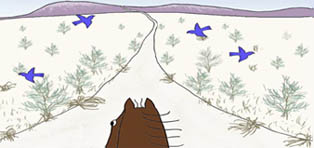 AmericanTrails.org - Full Article
AmericanTrails.org - Full ArticleDedicated volunteers are working to improve and complete the trail that runs across seven northern states.
by Taylor Goodrich, Communication and Media Specialist, American Trails
It is fitting that in a year with so much history American Trails is gearing up to hold the next International Trails Symposium in one of the oldest states in the nation.
New York was, as we know, one of the thirteen original colonies, before America was even a country, and when all trails were equestrian trails. New York is also famous as a melting pot, and the place, more than any other, which has welcomed people from across the world to America’s doorstep, as millions made their way through Ellis Island to become part of our history.
We are proud to continue this tradition of welcoming those from across the globe to New York at our 2019 symposium, which will include scholarship students from all over the world. Of course, the biggest piece of history we will be celebrating at the upcoming symposium will be the National Trails System Act turning 50, and how that legislation has shaped our country’s trails since President Lyndon Johnson spoke these memorable words.
“The forgotten outdoorsmen of today are those who like to walk, hike, ride horseback, or bicycle. For them we must have trails as well as highways... Old and young alike can participate. Our doctors recommend and encourage such activity for fitness and fun...”
Read more here:
https://www.americantrails.org/blog/2018/discovering-the-north-country-trail
